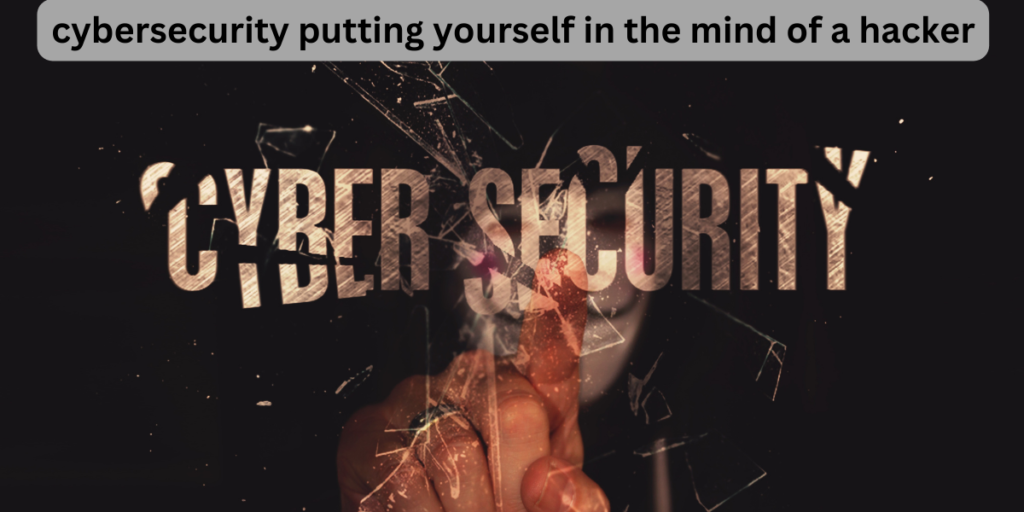Cybersecurity: Putting Yourself in the Mind of a Hacker
In the age of digital information, gold is mined, and hackers are always looking for gold. What if you were able to beat them in the game of their own? You are now in cybersecurity. Put yourself in the mindset of hackers. It’s not about learning ways to be a hacker but rather understanding the way hackers think so you’ll be one step ahead of them.
Suppose you are aware of the characteristics hackers look for. In that case, what they use to attack weaknesses and what motivates them, you’ll be better able to strengthen your defences for your family, yourself, or even your business. It’s about changing the focus from defence to offence in your security-focused perspective.
Let’s dive in.
Hacker Mindset in Cybersecurity: Understand the Enemy to Defend Better
To be able to outwit a hacker, you have to first know the way they think. The hacker’s mindset isn’t necessarily malicious, but it’s curious, analytical, and persistent. Hackers look at systems with awe. They don’t recognise barriers; they recognize opportunities.
They investigate:
-
How are systems constructed
-
Where are the weaknesses?
-
How can you get around security mechanisms?
Many cybersecurity professionals adhere to the same mindset. It’s known as ethics-based hacking or penetration. Through imitating hackers, they can spot weaknesses before the bad guys are able to.
“The best defense is understanding how an offense operates.”
Find out more about hacker mentality as well as how it can be employed in cybersecurity practices.
Ethical Hacking and Penetration Testing: Use Hacker Tactics for Good
There’s a term used to describe professionals who employ hacker skills to be good: “ethical hackers or white-hat hackers. They carry out penetration testing to test cyberattacks and assist companies in securing their systems.
This is legal, ethical, and extremely sought-after.
Tools Ethical Hackers Use:
-
Metasploit is used to test defenses and simulate attacks.
-
Kali Linux: A toolkit for penetration testing.
-
Nmap is a scanner that scans networks for available ports as well as services.
Ethical hacking is the foundation of current cybersecurity techniques. It transforms the strategy of hackers into your most effective protection.
Role of Social Engineering in Cybersecurity Attacks
Hackers usually make use of human behavior as well as weaknesses in software. This method is referred to as “social engineering”–‘s incredibly effective.
Common tricks are
-
Fake tech support phone calls
-
Scams to reset passwords
Hackers may not require your password, but they could get you to give the password to them.
Protect Yourself:
-
Never click suspicious links
-
Verify the sender’s address before you respond
-
Make use of multi-factor verification (MFA) on all accounts.
Understanding the way social engineering is done gives you the insight to be able to resist it.
Cybersecurity Tools to Protect Your Digital Life
If you’re now being hacked, it’s time to get ready. Here are the most important techniques and tools for everyday security:
-
Password Manager – Try 1Password or Bitwarden.
-
VPN – Disguise your location while encrypting your data. Try Proton VPN.
-
Firewall, along with antivirus. Make use of ShieldsUP! to test your firewall.
-
Software updates: Always keep your devices and applications up to date.
Each tool you employ should be designed in the context of “How would I break this if I were a hacker?”
Real-Life Cybersecurity Breach: A Smart Baby Monitor Hacked
Jane, who is a mom of two, has set up her own Smart Baby Monitor using the default credentials. In the evening, the device started playing music and even talking.
A hacker had spotted the camera online and was able to access it with an array of passwords that defaulted to it.
What happened?
-
The default password has never been changed
-
No firmware updates
-
No network encryption
How to stop it:
-
Change all default credentials immediately
-
Use complex, unique passwords
-
Make sure that the firmware is up-to-date
This isn’t fiction; it’s real-time evidence. It also shows how even the smallest errors can result in big problems.
Cybersecurity Career Path: From Cybersecurity to Hacking
Being a hacker-like person not only protects you; it could make you a career. r. A lot of professionals begin their careers in cybersecurity or IT positions and then focus on ethics-based hacking, forensics, and penetration testing.
The most popular certifications are
These programs show you how to utilize hacker tools ethically and legally to ensure that companies are safe.
Frequently Asked Questions (FAQ)
What’s the mentality of hackers?
The hacker’s mindset is one with curiosity, imagination, and perseverance, along with critical and analytical thinking. Hackers are always looking at the ways systems function and the ways they can be altered. They think outside of the box and challenge assumptions, usually searching for weaknesses that other people do not see. The ethical hackers use this mindset to assist organizations in strengthening their security by identifying and fixing weaknesses before malicious hackers gain access to their systems.
Are cybersecurity professionals hackers?
But not all of them are. A lot of security professionals are aware of or even use hacking techniques legally. The people who work as penetration testers, red teamers, or cybersecurity researchers employ hacker tactics legally and in a responsible manner to discover vulnerabilities. Some cybersecurity specialists concentrate on the policy, compliance, and response to incidents. While not all cybersecurity professionals are expert hackers, many employ similar strategies for security goals.
Do I have the potential to become a hacker following cybersecurity?
Yes! A lot of ethics-based hackers begin with a solid foundation in security. Once you have a solid understanding of the systems, threats, and defenses, it is possible to transition to hacking. I’m hacking. Earning certifications like those of CEH, OSCP, and Pentest+ will help. Hacking with a hacker’s ethical code is a legit and expanding career option within the cybersecurity industry.
What role do hackers play in securing cyberspace?
Hackers perform both defensive and offensive roles. Hackers who are malicious (aka black hats) take advantage of weaknesses to gain personal gain. However, legitimate hackers (or white hats) are the exact opposite; they use simulations of attacks to discover and repair weaknesses. This is why hackers are vital to security, conducting tests, training, and strengthening the security of your network. Without them, a lot of security vulnerabilities would be largely unnoticed.
Final Thoughts: Outwit Hackers by Thinking Like One
The art of mastering security by placing yourself in the shoes of an attacker isn’t just a honed skill; it’s an essential tool for survival. From security measures for passwords, from password protection to the penetration test, the use of this mindset can help you identify vulnerabilities and block them prior to attackers gaining access.
When you next log into your bank account or install an intelligent home device, consider: If I were a hacker, how would I go about tackling this?
This alone is your most effective defense. To see how real companies are staying ahead in the cybersecurity game, check out how Wiz is making waves in the industry with smart cloud security solutions.

Useful Links
Subscribe Now
Don’t miss our future updates! Get Subscribed Today!
noorkhanacdc145gmail.com
©2024. Motictech. All Rights Reserved.


